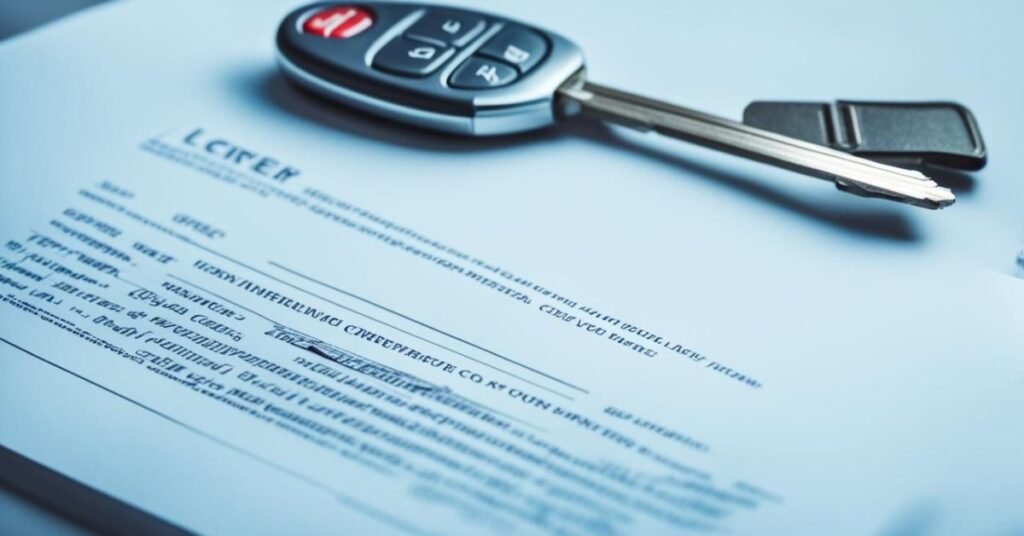Many people wonder if they can sue after settling with an insurance company. The complex nature of insurance settlement legal options can seem overwhelming. People often think that once they settle with an insurance company, they can’t sue anymore. But, there are times when you can still take legal action after settling.
In this article, we’ll look into insurance settlements, the legal duties of both sides, and if you can make more claims after settling. Knowing these things helps you understand your legal rights and what you can do next.

Key Takeaways
- Understanding the implications of settling with insurance.
- Legal rights may still exist after a settlement.
- Exploring options for post-settlement lawsuits is essential.
- Insurance companies play a pivotal role in claim settlements.
- Seek legal advice to navigate complex situations.
- Know the obligations of both parties in the settlement process.
Understanding Insurance Settlements
When people face loss or injury, they often look to insurance for help. It’s important to know about insurance settlements if you’re making a claim. This part will explain what an insurance settlement is and how insurance companies work in the process.
What is an Insurance Settlement?
An insurance settlement is when the insured person and the insurance company agree on a way to settle a claim without going to court. They talk about how much money to pay, looking at things like how bad the damage was and who was at fault. This shows how insurance settlements help solve problems without a long legal fight.
The Role of Insurance Companies
Insurance companies play a big part in settling claims. They look at claims, talk about settlements, and figure out how much money to pay based on their rules. They use things like accident reports and medical records to make their decisions. Knowing what insurance companies do can help people making claims understand the process better.
Legal Aspects of Settling
Understanding the legal parts of insurance settlements means knowing what both sides agree to. When a settlement is made, both the person making the claim and the insurance company have certain duties. These duties tell us how the settlement will work and what it means for future claims.
Obligations of Both Parties
When a settlement is agreed upon, certain rules apply to both sides. The person making the claim agrees to let the insurer off the hook for any more claims about the incident. This is key because it stops the person from asking for more money for the same issue later.
The insurer must pay quickly and stick to the settlement agreement. This makes sure everything goes smoothly.
Release of Liability
The idea of releasing someone from liability is a big part of insurance settlements. By agreeing to a settlement, the person making the claim signs a paper that lets the other party off the hook for any more legal action. This release is very clear about what it covers, making sure both sides know their rights.
Experts say these documents are very important. They can change how things go if there are more claims later.

| Party | Obligations |
|---|---|
| Claimant | Release insurer from further claims, accept settlement terms |
| Insurer | Make payment, fulfill settlement agreement |
Can You Sue Someone After Settling With Their Insurance?
Many people wonder if they can still sue after settling with an insurance company. Settling usually means you’ve agreed to end a dispute. But, there are some things to think about that might let you take legal action again. It’s important to know these things before making a choice.
Key Considerations
Thinking about these points is key when wondering if you can sue after settling:
- Nature of the Original Claim: The details of your first claim matter a lot for your legal rights. It’s important to look closely at what you were originally claiming.
- Settlement Terms: Check the settlement agreement’s terms. Many include waivers and releases that might stop you from suing later.
- Signed Releases: These documents often say you can’t make any more claims about the case. It’s important to know what they mean.
Exceptions to the Rule
Even though settlements usually stop you from suing, there are some exceptions:
- Fraud: If you settled because of fraud, you might be able to challenge the settlement.
- Newly Discovered Evidence: If you find evidence you didn’t have before, you might be able to reopen your case.
- Violations of Statutory Rights: If your rights under the law were broken, you might still be able to sue.

Post-Settlement Options
After settling an insurance claim, there are still options to consider. Claimants might be able to negotiate for more money under certain conditions. Knowing these options helps people get the most out of their settlement and get the support they need.
Negotiating Additional Compensation
Negotiating your settlement is still possible in some cases. You might need more money for new medical bills, new evidence, or changes in your life. Here are some tips for negotiating:
- Documenting additional expenses to show you have more financial needs.
- Engaging a legal professional to help with your negotiation.
- Presenting clear evidence of why you need more money now.
Potential for Structured Settlements
Structured settlements are another option after settling. They give you money over time instead of all at once. They’re great for people who will need ongoing medical care or expenses. The main benefits are:
- Guaranteed income for a set time, which helps avoid spending all your money too fast.
- Ability to adjust payments to fit your future financial needs.
Think about the pros and cons of structured settlements. Consider what you need now and what you might need in the future.
Impact of Settlements on Future Claims
Settlements and future claims have big legal effects. It’s key to know how past deals affect legal rights. The outcome depends on the settlement’s terms and the case’s details. People need to understand how past deals might change their rights to make new claims.
How Settlements Affect Legal Rights
Settlements and legal rights often mix, affecting a claimant’s future legal options. Accepting a settlement means giving up some rights. This can stop a person from making new claims about the same issue. The impact of settlements often comes from releases that stop future lawsuits in certain areas.
Statutes of limitations also play a part in future claims. Settling too early can mean losing the right to seek more money later. Each place has its own rules on how long you can file a claim, making when you settle very important.
Previous court cases set legal precedents after settlements. Courts usually say settlement deals are binding. So, claimants must understand the legal risks before agreeing to any settlement terms.
Seeking Legal Counsel
Dealing with insurance settlements can be tough. Many people wonder when they should get legal help. Knowing when to talk to a lawyer can make things clearer. This is true if there are problems with the settlement or if you find more damages later.
When to Consult an Attorney
You might need to talk to a lawyer if:
- There are delays or problems getting paid.
- There are disagreements about the settlement terms.
- New evidence of damages shows up after the settlement.
- You’re not sure about your legal rights.
Seeing these signs means it’s key to look into your options and figure out what to do next.
Finding the Right Legal Representation
Finding the right lawyer means looking closely at several things. Here are important factors to think about:
- Experience in Insurance Law: Make sure the lawyer knows a lot about insurance cases.
- Client Reviews: Look at what past clients say and the results they got to see if the lawyer is good.
- Fee Structures: Check how the lawyer charges for their work. Knowing this upfront can prevent surprises.
Also, legal aid groups and bar associations can help by giving advice and leads on finding the right lawyer.
Lawyers Who Sue Insurance Companies: A Comprehensive Guide
Conclusion
Understanding insurance settlements and their effects on future claims is key. Deciding to sue after a settlement is a big step. It’s important to know your legal rights and how settling might change your future options.
Every case is different when it comes to insurance settlements. The details of your situation can affect if you can take further legal action. It’s important to look at each case closely, knowing there might be exceptions to the usual rules.
Knowing about insurance claims and settlements is crucial. Talking to a lawyer can clear up your rights and help you make smart choices. Stay informed to make the best decisions for your situation.
